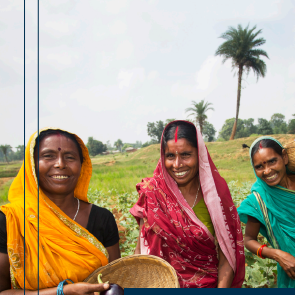Advancing gender equality in a post COVID context: Mitigating the impacts of COVID-19 on India’s women and girls through emergency cash transfers
August, 2020
COVID-19 is no longer a health crisis. The pandemic and the subsequent lockdown have led to dire socio-economic challenges for India. Loss of livelihoods, food insecurity, wage cuts and financial insecurity are among the few challenges that the majority of Indians are grappling with, especially the poor. The lockdown and the halt of economic activities led to the reverse migration of millions of migrants. According to the Census of 2011, there are 139 million interstate migrants who are now among the worst hit by the pandemic and the lockdown. Little to no data exists on women migrant workers, mostly employed in construction and domestic work, who continue to be invisible in recent policy discourse and in the design of relief packages. The return of male migrant workers too can have unintended effects on women: fewer jobs being available to them in rural areas, thereby impacting overall levels of household income. All these uncertainties have led to the re-emergence of a demand for basic income in India. Convergence of existing schemes, fewer leakages and less corruption, as well as reduction in administrative costs, are some of the arguments in favour of a basic income, which were also cited in India’s Economic Survey (2017– 18). An emergency basic income has the potential to mitigate the adverse impacts on the most vulnerable, including women and girls.
Resource Type Learning note
Topics Gender, UEGS, cash transfers, emergency basic income
Authors Kanika Jha Kingra

















































